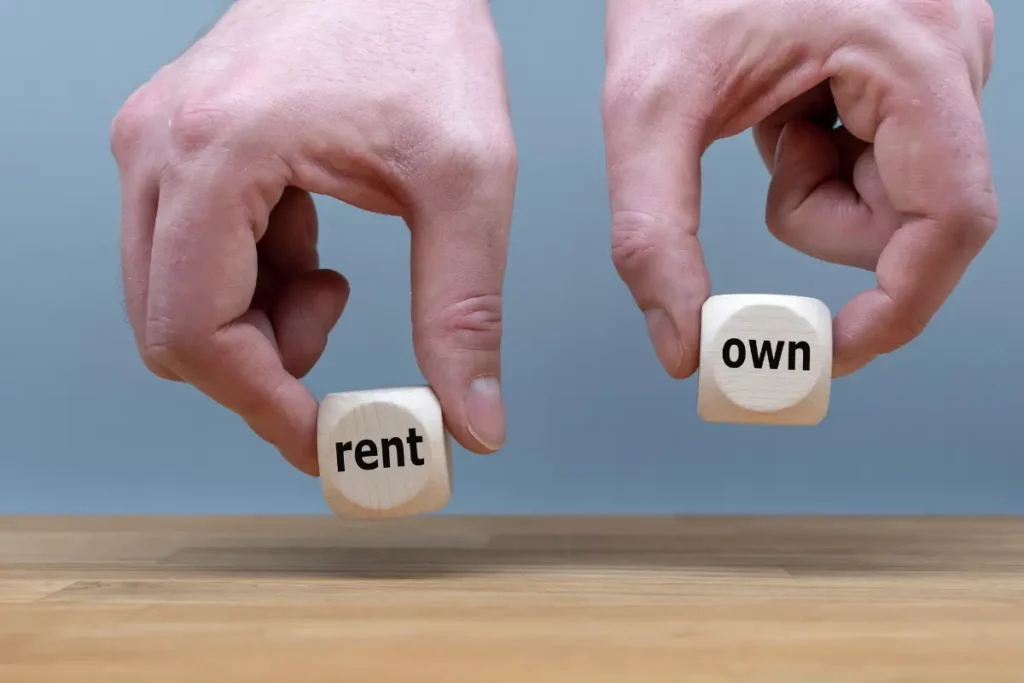When it comes to finding a place to live, renting and rent-to-own are two options that provide flexibility for individuals and families. Both have their advantages and disadvantages, and choosing between them depends on your financial situation, long-term goals, and personal preferences.
In this article, we’ll provide a comprehensive comparison of renting and rent-to-own to help you make an informed decision for your housing needs. If you’re currently searching for apartments for rent, you can start your housing journey there.
Renting
Pros of Renting
1. Financial Flexibility:
Renting typically requires a lower upfront cost than buying a home or participating in a rent-to-own program. You’ll usually pay a security deposit and the first month’s rent, making it more accessible for those with limited savings.
2. Lower Maintenance Responsibilities:
As a renter, you’re not responsible for major maintenance and repairs. If something breaks or needs fixing, you can simply contact the landlord or property management, and they will take care of it.
3. Short-Term Commitment:
Renting provides the flexibility to move to a different location or upgrade to a different property when your lease term ends. This is ideal for individuals who are unsure about their long-term plans.
4. Predictable Costs:
Renters typically have predictable monthly housing costs since rent increases are usually limited by lease agreements. This can make budgeting more straightforward.
Cons of Renting
1. Limited Equity Building:
When you rent, you don’t build equity in the property. The money you pay in rent goes to the landlord, and you won’t benefit from any potential appreciation in property value.
2. Restrictions on Customization:
Landlords may impose restrictions on how you can decorate or modify the property. This limits your ability to personalize your living space.
3. Rent Increases:
While rent increases are usually regulated by lease agreements, landlords can still raise rent when leases expire, potentially making housing costs less predictable in the long term.
Rent-to-Own
Pros of Rent-to-Own
1. Path to Homeownership:
Rent-to-own agreements offer a path to homeownership for individuals who may not qualify for a mortgage right away due to credit or financial issues.
2. Equity Building:
A portion of your monthly payment in a rent-to-own arrangement typically goes toward building equity in the property. This can help you accumulate savings for a future purchase.
3. Personalization:
In many rent-to-own contracts, you have more freedom to customize and improve the property to your liking, as it will eventually become your home.
4. Long-Term Stability:
Rent-to-own agreements often come with longer lease terms, providing more stability and the opportunity to establish roots in a community.
Cons of Rent-to-Own
1. Higher Upfront Costs:
Rent-to-own arrangements typically require a larger upfront payment or option fee, which can be a significant financial commitment.
2. Potential for Lost Investment:
If you decide not to purchase the property at the end of the rent-to-own period, you may lose the option fee and the additional money you paid toward building equity.
3. Limited Inventory:
Rent-to-own properties are not as common as standard rental properties, so your options may be limited depending on your location and budget.
4. Strict Contracts:
Rent-to-own contracts can be complex and include strict terms and conditions. It’s crucial to fully understand the terms before entering into such an agreement.
Making the Decision
Choosing between renting and rent-to-own depends on your financial situation, goals, and lifestyle preferences. Here are some factors to consider when making the decision:
1. Financial Readiness:
Assess your financial situation, including your credit score, savings, and ability to cover upfront costs. Renting is generally more accessible for those with limited savings or lower credit scores, while rent-to-own requires a more significant upfront investment.
2. Long-Term Goals:
Consider your long-term housing goals. If you’re committed to homeownership and want to build equity in a property, rent-to-own might be a better option. If you value flexibility and don’t want to commit to a specific property, renting may be preferable.
3. Location and Inventory:
The availability of rent-to-own properties varies by location. Research the inventory of rent-to-own homes in your desired area to determine if it’s a feasible option.
4. Contract Terms:
Carefully review the terms and conditions of any rent-to-own agreement. Make sure you understand the option fee, monthly payments, and your responsibilities as a tenant/buyer.
5. Professional Advice:
Consider consulting with a real estate agent or financial advisor who can provide guidance based on your individual circumstances and goals.
Conclusion
Renting and rent-to-own are two distinct housing options, each with its own set of advantages and disadvantages. Renting provides immediate housing with lower upfront costs and greater flexibility, while rent-to-own offers a path to homeownership and equity building for those with long-term goals.
When making your decision, consider your financial readiness, long-term objectives, location, contract terms, and seek professional advice if needed. Ultimately, the choice between renting and rent-to-own should align with your unique circumstances and housing aspirations.


